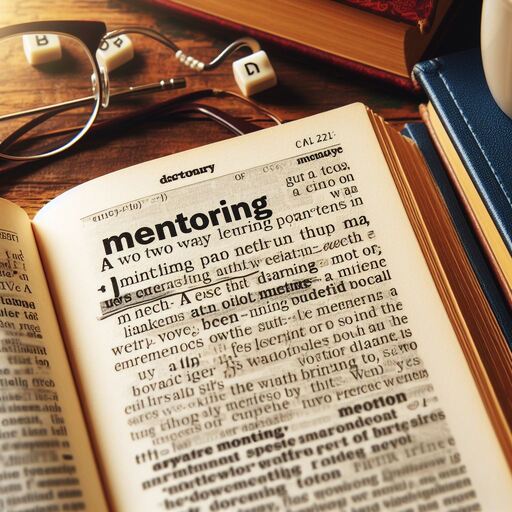How can I increase my chances of being promoted thanks to mentoring?

How can I increase my chances of being promoted thanks to mentoring?
Who is your mentor?
A decade or so ago, my position got me to attend many events related to research funding.
In these events, also often participated one female scientist. She would speak up or ask questions whenever she had the opportunity.
The area she represented was relevant then and is now – gender equality in science. The only problem is that every time we listened to the same questions, the same reproaches and suggestions repeatedly.
I told myself then that I would NEVER become like her. Because when she stood up or raised her hand, everyone around her wanted to scream in despair that they would have to listen to the same thoughts AGAIN.
Now I often wonder if I have become like her because I see mentoring everywhere!
When I study the situations mentioned in the articles and posts, I keep thinking that:
- the solution is just about finding a good mentor!
- this organization needs to sort out its mentoring program because they forgot a critical point 😊
- etc.
Today, reading articles in the “Harvard Business Review,” I wrote down how simple mentoring would solve the identified problems in four separate places!
I remembered that researcher who talked about gender equality because one of my highlights today was reviewing a study about risks to women’s careers.
The study shows that more women than men who have young children would choose to work full-time from home in recent years.
According to the study’s authors, this is a worrying finding, given the evidence that off-site employees have lower rates of promotion.
What did I note in my review of this study?
The question “How can I increase my chances of promotion through mentoring? “. Even if you work not in the office!
And some answers like – Mentor your colleagues and find different mentors within your organization.
This way:
- Expand your social network.
- You will have more “warm contacts” within the organization.
- There will be more opportunities to develop your competencies. Especially those that are not reflected in your current work.
- You’ll be more involved in the organization, even if you work from home!
- You would learn new things, even if you didn’t expect to.
- You will develop your leadership skills.
The list goes on and on, but you get the idea 😊.
Successful organizations are no longer asked, “DO YOU HAVE A MENTORSHIP PROGRAMME?”
Asked -” What mentoring programs do you have?”
Successful professionals are no longer asked, “DO YOU HAVE A MENTOR?”
Instead, they are asked, “Who is your mentor?“
What is your answer?






